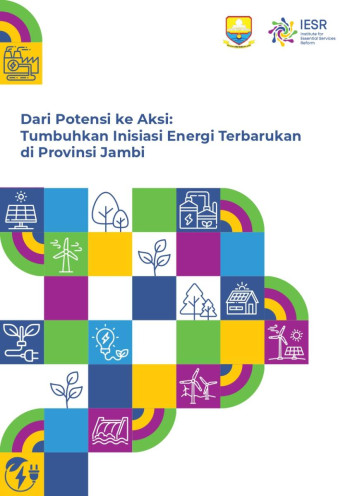Promoting a Sustainable Energy Transition in Jambi: A Journey and Collaborative Lessons
The energy transition is a critical agenda for creating a cleaner and more sustainable future. As key actors in local implementation, local governments have a strategic role to accelerate this process. To support this, the Institute for Essential Services Reform (IESR) is collaborating with the Jambi Provincial Government, specifically the Energy and Mineral Resources (ESDM) Agency, to promote a clean, equitable, and low-carbon energy system.
Since the signing of the Cooperation Agreement (PKS) on March 22, 2021, the partnership between IESR and the Jambi Provincial ESDM Agency has focused on achieving the ambitious renewable energy targets of 24% by 2025 and 40% by 2050, as mandated by the Regional Energy Master Plan (RUED). Various collaborative initiatives have been undertaken, ranging from data-driven scientific studies and mapping solar energy potential on government rooftops to clean energy assistance programs for low-income communities.
This publication summarizes the journey, impacts, and lessons learned from the collaboration between IESR and the Jambi Provincial Government from 2020 to June 2024. Using a Monitoring, Evaluation, and Learning (MEL) approach, this document outlines the positive contributions of this collaboration to increasing public awareness, renewable energy development programs, and the emergence of opportunities for broader collaboration. The report also outlines the challenges faced—such as budget constraints and low readiness—and strategic recommendations for strengthening energy transition advocacy at the subnational level.
Reflections on this journey demonstrate that, with sustained support and the right strategies, Jambi has a significant opportunity to achieve its renewable energy targets. This will not only provide economic benefits but also contribute to environmental preservation and improve the community’s quality of life.
Energy Transition, Renewable Energy, Jambi Province, IESR, Regional Government, Solar Energy, Energy Policy, RUED, Public Collaboration, Capacity Building, Sustainability.

